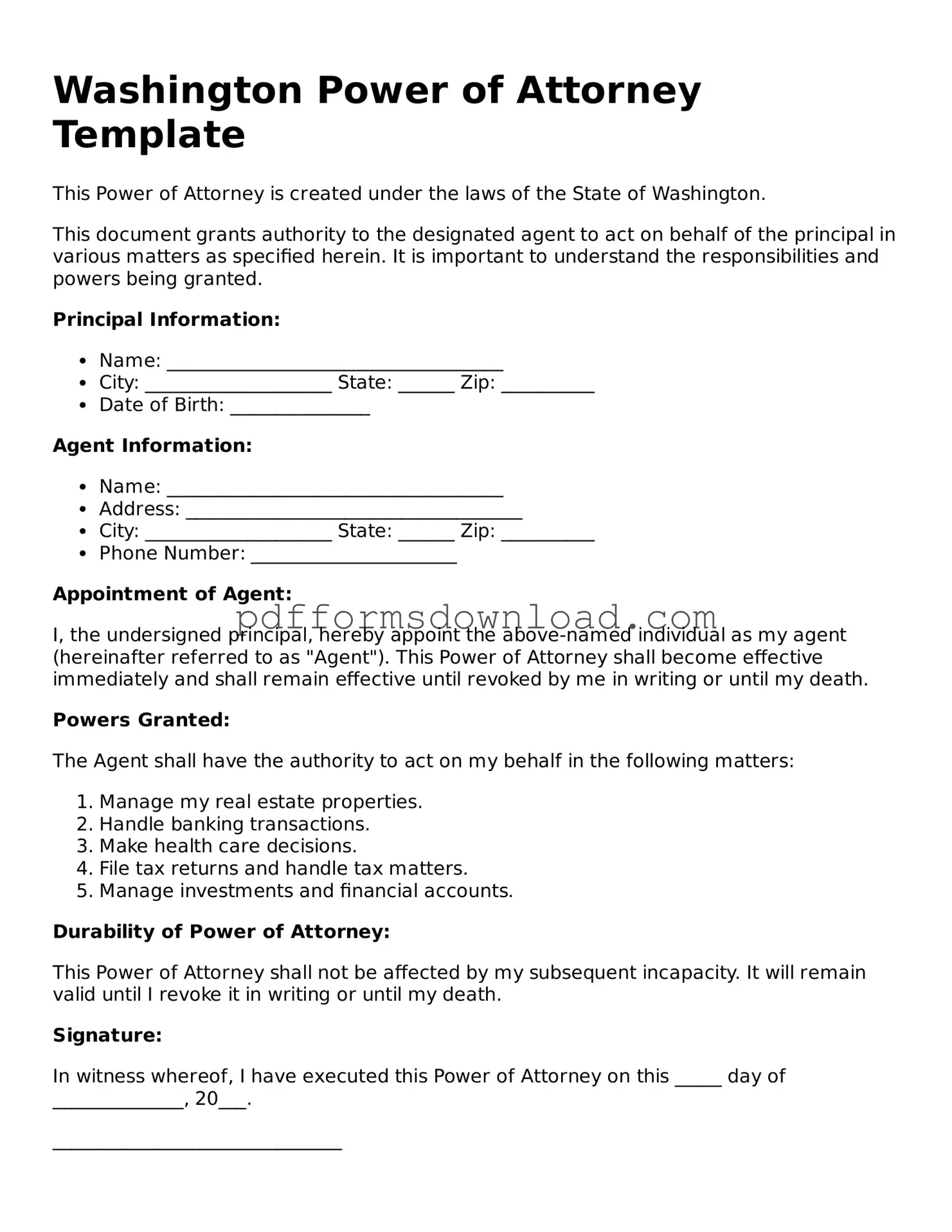What is a Power of Attorney (POA) in Washington?
A Power of Attorney is a legal document that allows one person (the principal) to grant another person (the agent or attorney-in-fact) the authority to make decisions on their behalf. In Washington, this can include decisions about financial matters, medical care, or other personal affairs, depending on the type of POA created.
What types of Power of Attorney are available in Washington?
Washington recognizes several types of Power of Attorney. The most common are the General Power of Attorney, which grants broad powers to the agent, and the Limited Power of Attorney, which restricts the agent's authority to specific tasks. Additionally, there is a Durable Power of Attorney, which remains effective even if the principal becomes incapacitated, and a Medical Power of Attorney, which specifically allows the agent to make healthcare decisions.
How do I create a Power of Attorney in Washington?
To create a Power of Attorney in Washington, you must complete the appropriate form, which can be found online or through legal resources. The form must be signed by the principal and notarized. It's advisable to choose a trustworthy agent and clearly outline the powers being granted to avoid confusion later.
Do I need a lawyer to create a Power of Attorney?
While it is not legally required to have a lawyer to create a Power of Attorney in Washington, consulting with one can be beneficial. A lawyer can provide guidance on the best type of POA for your situation and ensure that the document complies with state laws.
What happens if I don’t have a Power of Attorney?
If you become incapacitated and do not have a Power of Attorney in place, your family may need to go through a court process to obtain guardianship. This can be time-consuming and costly, and it may not reflect your wishes regarding who should make decisions on your behalf.
Can I revoke a Power of Attorney in Washington?
Yes, you can revoke a Power of Attorney in Washington at any time, as long as you are mentally competent. To do so, you should create a written revocation document and notify your agent and any relevant institutions or parties that relied on the original POA.
What should I consider when choosing an agent for my Power of Attorney?
Choosing an agent is a significant decision. Consider selecting someone you trust implicitly, who understands your values and wishes. It’s also important that this person is reliable and able to handle the responsibilities involved in managing your affairs.
Can a Power of Attorney be used for medical decisions?
Yes, a specific type of Power of Attorney, known as a Medical Power of Attorney or Healthcare Proxy, allows your agent to make medical decisions on your behalf if you are unable to do so. This document should clearly outline your healthcare preferences and any limitations on the agent’s authority.
Is a Power of Attorney valid in other states?
A Power of Attorney created in Washington is generally valid in other states, but laws can vary. If you plan to use your POA in another state, it’s wise to check that state’s requirements and consider having the document reviewed by a local attorney.
What are the responsibilities of an agent under a Power of Attorney?
The agent has a fiduciary duty to act in the best interests of the principal. This includes managing the principal's finances responsibly, keeping accurate records, and making decisions that align with the principal's wishes. The agent must also avoid conflicts of interest and cannot benefit personally from the principal's assets unless explicitly allowed.

